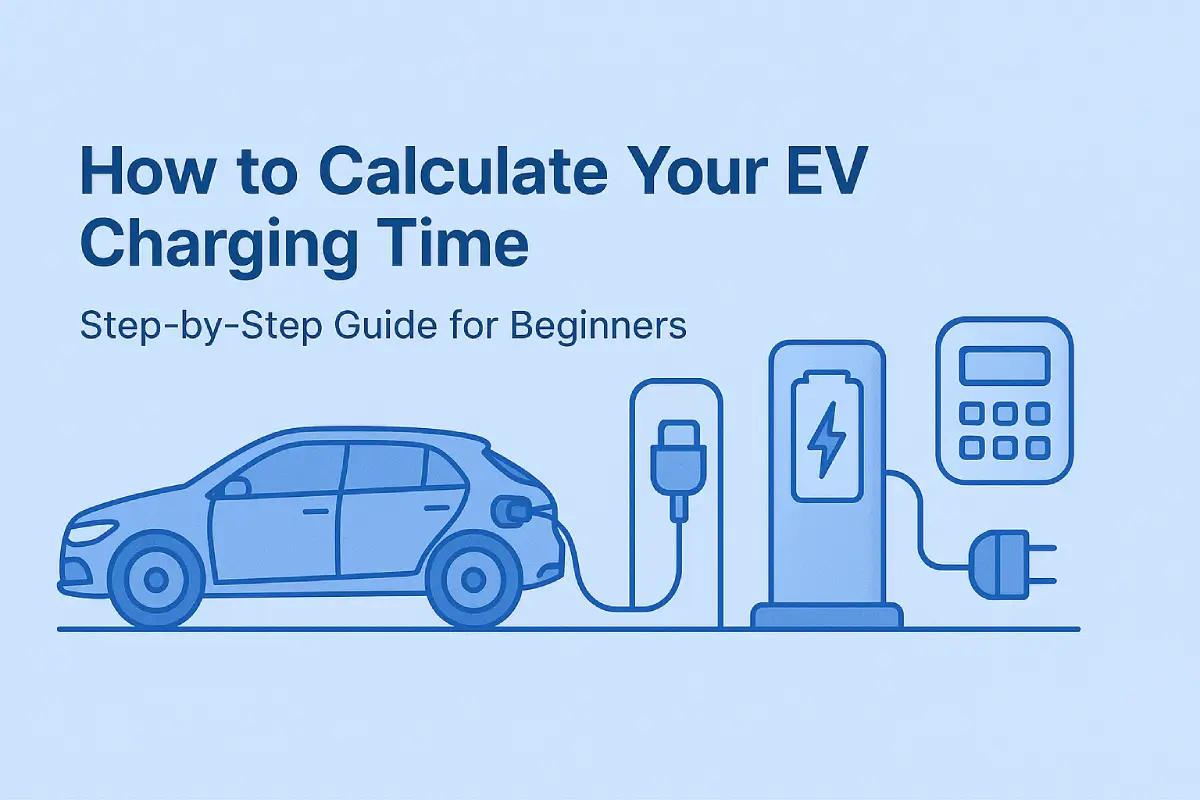Electric vehicles (EVs) are transforming the way we commute, offering a cleaner, more efficient alternative to gas-powered cars. But if you're new to the world of EVs, understanding how long it takes to charge your vehicle can be confusing. Don't worry—we've got you covered.
In this guide, we'll break down how to calculate your EV charging time step-by-step and introduce you to a handy EV Charging Calculator to make your life easier.
🔌 Step 1: Know Your EV Battery Size
Every electric vehicle has a battery capacity, usually measured in kilowatt-hours (kWh). This value tells you how much energy your battery can store.
Example:
A Tesla Model 3 might have a 60 kWh battery.
⚡ Step 2: Determine the Charger Power Output
The speed at which your EV charges depends on the power output of the charger you're using. This is measured in kilowatts (kW). There are typically three types:
- Level 1 (120V) - ~1.4 kW (standard home outlet)
- Level 2 (240V) - 3.3 to 11 kW (home or public charging)
- DC Fast Charging - 50 kW or more
🧮 Step 3: Use the Charging Time Formula
You can calculate the charging time using this simple formula:
Charging Time (hours) = Battery Size (kWh) ÷ Charger Power Output (kW)
Example Calculation:
- Battery: 60 kWh
- Charger: 7.2 kW (Level 2 charger)
60 ÷ 7.2 = 8.33 hours
So, it would take approximately 8.3 hours to fully charge your EV.
🧠 Step 4: Consider Efficiency and Charging Limits
In real-world conditions, charging is not 100% efficient. You may lose about 10-15% due to heat and energy transfer inefficiencies.
You might want to adjust the formula:
Adjusted Charging Time = (Battery Size ÷ Charger Power Output) x 1.1
Also, note that most people don't charge from 0% to 100%. Instead, they often top up from around 20% to 80%.
🔗 Use an EV Charging Calculator
Don't want to do the math manually? Use our easy-to-use online EV Charging Calculator to quickly estimate your charging time based on your vehicle and charger type.
✅ Try it now: EV Charging Calculator
📌 Summary
| Factor | Description |
|---|---|
| Battery Size | Total energy capacity of your EV battery (in kWh) |
| Charger Power | Output of your EV charger (in kW) |
| Efficiency | Real-world conditions may affect total charge time |
| Partial Charging | You typically won't charge from 0% to 100% daily |
Final Thoughts
Learning how to calculate your EV charging time is essential for planning trips and optimizing your daily routine. With this step-by-step guide and a reliable EV Charging Calculator, you'll be able to charge smarter and drive further.
